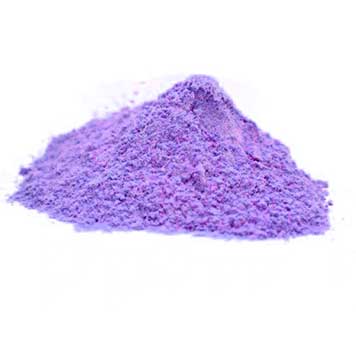
antacids containing aluminum hydroxide
Antacids Containing Aluminum Hydroxide An Overview
Antacids are a popular class of medications utilized to relieve acidity and indigestion, commonly caused by excess gastric acid in the stomach. Among the various active ingredients used in antacids, aluminum hydroxide stands out due to its unique properties and effectiveness in neutralizing stomach acid. This article explores the role of aluminum hydroxide in antacids, its mechanism of action, benefits, potential side effects, and considerations for use.
Mechanism of Action
Aluminum hydroxide, a compound derived from aluminum oxide, functions as a buffering agent that neutralizes gastric acid. When ingested, it reacts with hydrochloric acid (HCl) in the stomach, forming aluminum chloride and water. This reaction raises the pH level in the stomach, leading to a decrease in acidity. By reducing acid levels, aluminum hydroxide alleviates symptoms of heartburn, sour stomach, and acid reflux, providing rapid relief to those suffering from these conditions.
Benefits of Aluminum Hydroxide
One of the primary benefits of antacids containing aluminum hydroxide is their effectiveness in treating acute gastric discomfort. These medications work quickly, often providing relief within minutes. Additionally, aluminum hydroxide has an extended duration of action compared to other antacids, allowing for longer-lasting relief. Furthermore, they are often combined with other active ingredients, such as magnesium hydroxide, to balance the constipating effects of aluminum with the laxative effects of magnesium, creating a more balanced formulation.
antacids containing aluminum hydroxide

Safety and Side Effects
While antacids containing aluminum hydroxide are generally considered safe for short-term use, there are some potential side effects to be aware of. One common issue is constipation, which can occur due to the aluminum's effect on the gastrointestinal tract. For individuals with kidney disorders, there is a risk of aluminum accumulation in the body, leading to serious health complications. Long-term use of aluminum-containing antacids may result in hypophosphatemia (low phosphate levels) since aluminum can interfere with phosphate absorption. Therefore, it is crucial for individuals with preexisting health conditions to consult healthcare professionals before starting any antacid regimen.
Usage Considerations
When using antacids that contain aluminum hydroxide, it is essential to follow the recommended dosages to avoid possible complications. Overuse can lead to more severe gastrointestinal issues, including constipation or the disruption of electrolyte balance in the body. Additionally, it is essential to be aware of any interactions with other medications; antacids can affect the absorption of certain drugs. Therefore, a gap of at least two hours should be maintained between taking antacids and other medications.
Conclusion
Antacids containing aluminum hydroxide serve as an effective means of managing gastric acidity and providing relief from discomfort associated with heartburn and indigestion. While they offer numerous benefits, users should remain vigilant about potential side effects and interactions with other medications. Consulting a healthcare provider is advisable for individuals with existing health conditions or those who require long-term management of acid-related issues. By understanding the proper use of aluminum hydroxide antacids, individuals can enhance their quality of life and alleviate the discomfort caused by excessive stomach acid.
-
nitrile-rubber-honoring-strict-production-standardsNewsAug.22,2025
-
aspartame-ingredients-honoring-food-safety-valuesNewsAug.22,2025
-
fertilizer-for-balanced-plant-nutritionNewsAug.22,2025
-
cyanide-gold-processing-with-high-purity-additivesNewsAug.22,2025
-
formic-acid-in-textile-dyeing-applicationsNewsAug.22,2025
-
aluminum-hydroxide-gel-in-skincare-productsNewsAug.22,2025
-
Regulatory Compliance for Global Mining Chemicals UseNewsAug.12,2025
Hebei Tenger Chemical Technology Co., Ltd. focuses on the chemical industry and is committed to the export service of chemical raw materials.
-

view more DiethanolisopropanolamineIn the ever-growing field of chemical solutions, diethanolisopropanolamine (DEIPA) stands out as a versatile and important compound. Due to its unique chemical structure and properties, DEIPA is of interest to various industries including construction, personal care, and agriculture. -

view more TriisopropanolamineTriisopropanolamine (TIPA) alkanol amine substance, is a kind of alcohol amine compound with amino and alcohol hydroxyl, and because of its molecules contains both amino and hydroxyl. -

view more Tetramethyl Thiuram DisulfideTetramethyl thiuram disulfide, also known as TMTD, is a white to light-yellow powder with a distinct sulfur-like odor. It is soluble in organic solvents such as benzene, acetone, and ethyl acetate, making it highly versatile for use in different formulations. TMTD is known for its excellent vulcanization acceleration properties, which makes it a key ingredient in the production of rubber products. Additionally, it acts as an effective fungicide and bactericide, making it valuable in agricultural applications. Its high purity and stability ensure consistent performance, making it a preferred choice for manufacturers across various industries.





